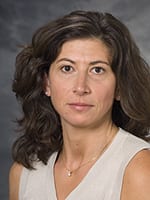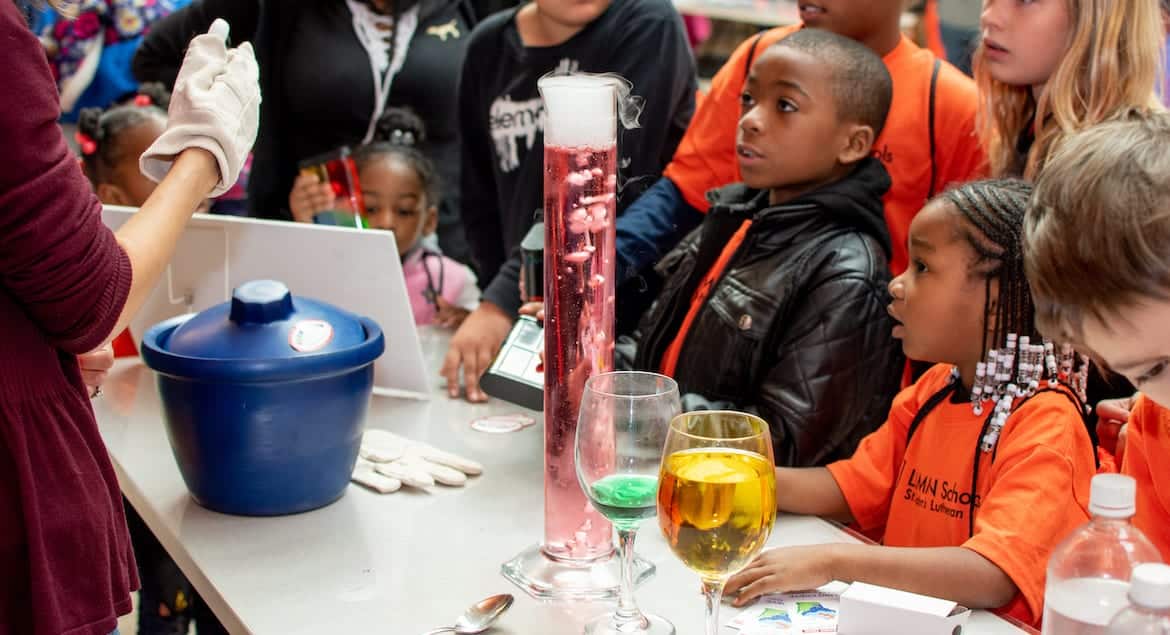
During this unprecedented pandemic, many facilities—including the Discovery Building—remain closed, and digital events have become the new normal. The Discovery Outreach team, led by director Laura Heisler, quickly pivoted to continue to provide quality online programming to maintain the strong relationships between the UW campus and local community.
The first Saturday Science: Home Edition was held on May 16, with a theme called “Crystals, Rainbows, and Light Detectives”.
Travis Tangen, education and outreach manager at the Wisconsin Alumni Research Foundation (WARF), says that the theme came out of a collaborative brainstorming process to leverage the existing relationships with researchers at the Morgridge Institute for Research and UW–Madison.
“The thing that really got us thinking was manipulating light in terms of understanding cells and biology and engineering in creative ways, using things that are pretty accessible to people,” says Tangen.
The team relied on its longstanding partnership with Morgridge investigator Melissa Skala, whose laboratory uses light and microscopic imaging techniques to investigate cell function and metabolism to explore treatments for clinical diseases like cancer. Skala previously collaborated on a project with PBS Wisconsin and the Timothy William Trout Education Innovation Lab, from which Tangen identified some activities well suited for Saturday Science.
“We then took a next step to thinking about what other campus connections could we leverage that had to do with using light—things like rainbows to crystals,” says Tangen. “There are a number of existing great resources that can make connections to our community.”
Heisler describes Saturday Science: Home Edition as a “choose your own adventure” interactive experience built around the activities that the outreach team has curated. Participants navigate an “interactive game board’ that looks like the Town Center at the Discovery Building, where one can mouse over and click on activities based on age and interest.
“There will be some things that you can do right then and there, things to get you to go outside and make observations, and then there will be a live component,” says Heisler.
We’re super committed to providing really valuable programming that accomplish the same goals that we have for in person programming.
Laura Heisler
Each activity is designed to give participants broad exposure to the variety of research happening at the Morgridge Institute for Research and UW–Madison, and provide a sense of what it is like to be a scientist or engineer in those programs, says Tangen. By having access to research activities, it builds the relationships between researchers and the community through a common experience built around science.
Whether growing a crystal in the kitchen or exploring the digital microscopy capabilities of a phone camera, the Discovery Outreach team welcomes participant engagement at a personal level, including inviting participants to share their experiences on social media.
“We’re hopeful for those potential participants—the young researchers, young scientists, young engineers—to really be able to take advantage of the access in a way that they feel some ownership,” says Tangen. “That’s a huge part of what really makes a difference in an informal science learning experience, is that you have the right to choose to do something or not to do something.”
The first Saturday Science: Home Edition event, which is still available to interact with online, has brought in over 560 page visits from nearly 300 unique visitors to date. The outreach team estimates that each online visit represents a family unit of 2 to 4 people, suggesting that the number of actual participants was at least 600 people—typical attendance for a conventional Saturday Science event.
The next Saturday Science: Home Edition will take place sometime mid-July.
“What we’re hoping is that people find it exciting and stick around for much of the experiences, as we intended just like normal Saturday Science,” says Heisler. “We’re super committed to providing really valuable programming that accomplish the same goals that we have for in person programming.”
